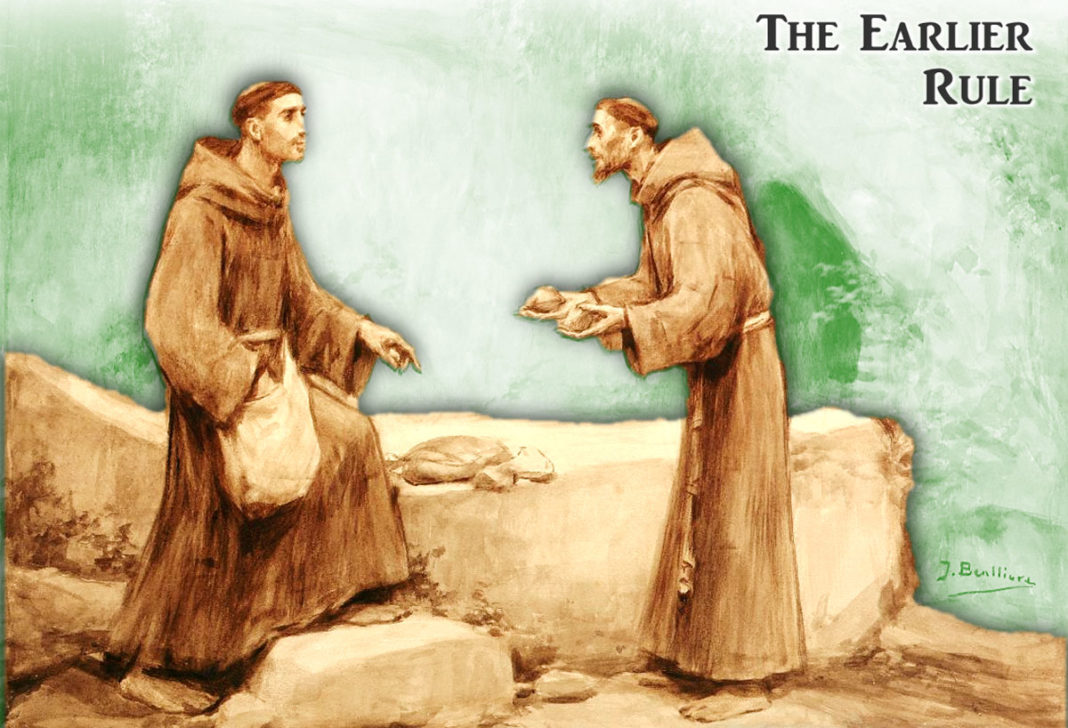In the previous article, we reflected on the way we should serve and work. We looked at concrete ways of carrying out these tasks, namely, from the standpoint of “minority.” It is no coincidence that after talking about service, St. Francis of Assisi devoted an entire chapter to the topic of money.
We must keep in mind that, along with his style of life, Francis proposes an economy of service: “Without cost you have received; without cost you are to give” (Mt 10:8). Beyond his thoughts on service, gratuitousness or poverty, we find that Francis is profoundly intuitive, as well. The Poverello of Assisi does not deal with money in a superficial or moralistic way, as we often do in our fraternities. Nor was it a fundamental topic for him, since he only mentions it in the Rule. This does not mean that money was unimportant to him, but it certainly was not a fundamental issue. On the other hand, it seems that for us men of the 21st century, money is important. It is also true that the reality in which we live is very different from the historical context of St. Francis. For example: Francis did not have to pay fees for electricity, water or gas, among other things. He did not build schools or hospitals, as Padre Pio did; nor was he at the head of an association the way Friar Maximilian Kolbe was with the Militia of the Immaculata. These saints certainly made use of money. How then should we understand chapter VIII of the Earlier Rule, which allows none of the friars, “wherever he may be or go, carry, receive, or have received in any way coin or money, whether for clothing, books, or payment for some work—indeed, not for any reason…” (Earlier Rule VIII, 3). How do we modernize the message of the Poverello of Assisi without betraying the Minorite spirit?
In addition to the biblical citations that illuminate the text[1], the key to understanding the depth of this chapter, in our opinion, can be found in the following passages:
The devil wants to blind those who desire [it]… (cf. Mt 19:27) May we who have left all things, then, be careful of not losing the kingdom of heaven for so little (Earlier Rule VIII, 4-5).
The problem is not money itself, as an object, but the effect money can have upon the life of a friar minor. For Francis, money provided power and security to those who owned it. Francis knew that power could seduce a man; that it could make him “lose his head”[2]. He knew that money in itself was only a piece of metal, but it was metal with a double-edge, because ambition could cause one brother to turn against another. Therefore, we would do well to ask ourselves: “How do we live our relationship with money within our option of minority”?
Until the next chapter!
Friar Elio J. ROJAS
[1] Earlier Rule VIII, 1-2: The Lord teaches in the Gospel: “Watch, beware of all malice and greed (cf. Lk 12:15). “Guard yourselves against the anxieties of this world and the cares of this life (cf. Lk 21:34).”
[2] In the Apostolic Exhortation Evangelii Gaudium, we can find additional food for thought about the topic on which we are reflecting: No to an economy of exclusion (nos. 53-54); No to the new idolatry of money (nos. 55-56); and No to a financial system which rules rather than serves (nos. 57-58). We also recommend reading: Franciscan Tradition: A Basis for Environmental Ethics, in: M. CARBAJO NUÑEZ, Sister Mother Earth, pp. 76-103.



















